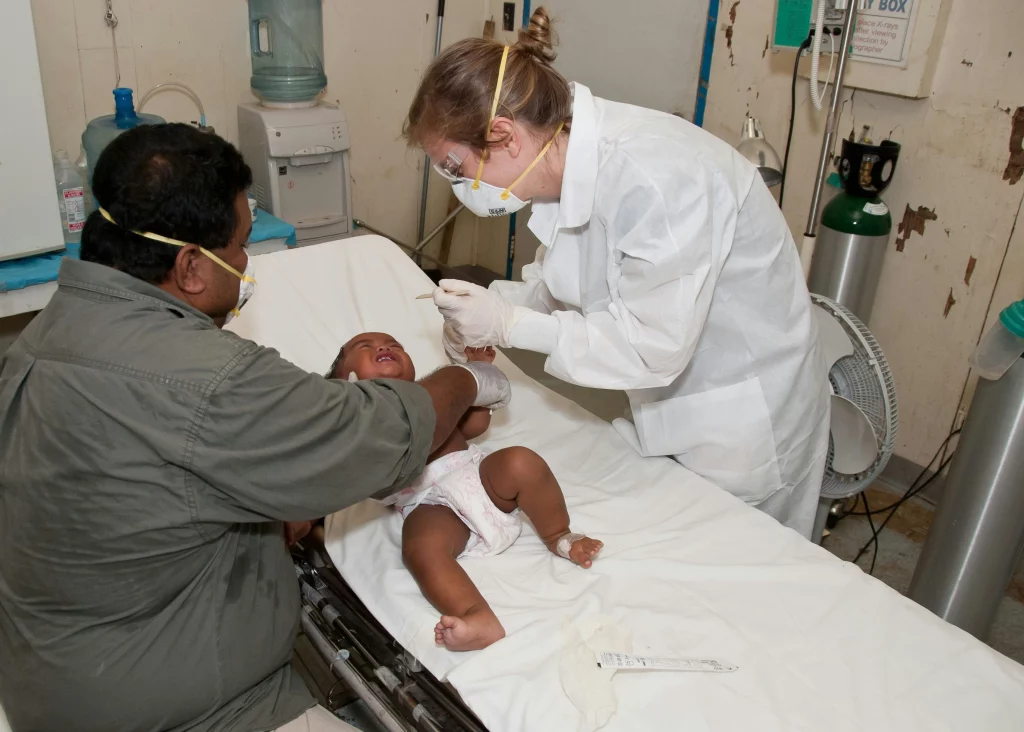UNAIR NEWS – A recent case in Malaysia, where a 19-month-old infant was diagnosed with ovarian cancer, has captured public attention. This diagnosis is particularly striking, as ovarian cancer primarily affects adult women. In response, dr. Pungky Mulawardhana, SpOG, Subsp Onk, a specialist in obstetrics and oncology, provided deeper insight into this rare case.
Dr. Mulawardhana noted that ovarian cancer in infants is exceedingly rare, with epithelial ovarian cancer—the most common type—typically found in older women. However, the Universitas Airlangga (UNAIR) medical expert explained that non-epithelial types of ovarian cancer can occur in infants and young children, albeit infrequently.

“While ovarian cancer in babies or children is possible, it is very rare. Nonetheless, with improved access to healthcare services, we are now diagnosing these cases more frequently and earlier, enabling quicker intervention,” dr. Mulawardhana explained.
Risk factors and symptoms
Although the exact causes of ovarian cancer in infants are still unclear, dr. Mulawardhana emphasized that genetic and environmental factors play a role. He pointed out that oncogenes, which can trigger the disease, may be influenced by factors like smoking, poor diet, and exposure to radiation.
“Our bodies are protected by anti-oncogenes, but when oncogenes overpower this defense, cancer can develop. Genetic factors, such as BRCA gene mutations, also increase cancer risk,” he added.
Dr. Mulawardhana further noted that the early symptoms of ovarian cancer are often nonspecific, making early detection difficult. Common early-stage signs may include nausea, bloating, and a loss of appetite.
“In advanced stages, the abdomen may swell, and significant weight loss can occur. Parents need to be aware and seek medical advice if their child shows unusual signs like trouble eating or a swollen abdomen,” he said.
Prevention strategies
While there is no surefire way to prevent ovarian cancer, dr. Mulawardhana recommended genetic screening as a precaution. He mentioned that in some developed countries, Familial Cancer Clinics offer genetic testing to assess cancer risks within families.
“If BRCA mutations are found, patients can undergo regular monitoring, such as annual ultrasounds, or take preventive measures like surgical removal of the ovaries and breasts to avoid cancer development,” dr. Mulawardhana explained.
In Indonesia, such services are not yet widely available. dr. Mulawardhana advised parents to lower cancer risks by promoting healthy lifestyles and avoiding carcinogens, such as smoking, processed foods, and excessive stress. “While prevention is challenging, staying vigilant and adopting a healthy lifestyle can significantly reduce the risks,” he concluded.
Author: Hana Mufidatuz Zuhrah
Editor: Edwin Fatahuddin









